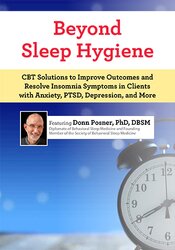Melde dich noch heute für einen Online-Kurs an und lerne flexibel und in deinem eigenen Tempo – ganz ohne festen Zeitplan.


-
 Online-KursEgal, ob du dich zum ersten Mal mit der Internal Family Systems IFS)-Therapie beschäftigst oder das Modell schon seit Jahren anwendest – melde dich an und finde heraus, wie du das Modell verfeinern und an die individuellen Bedürfnisse deiner Klienten anpassen kannst.Wert: 1.140,66 € *€275,99Egal, ob du dich zum ersten Mal mit der Internal Family Systems IFS)-Therapie beschäftigst oder das Modell schon seit Jahren anwendest – melde dich an und finde heraus, wie du das Modell verfeinern und an die individuellen Bedürfnisse deiner Klienten anpassen kannst.21. Oktober 2020Egal, ob du dich zum ersten Mal mit der Internal Family Systems IFS)-Therapie beschäftigst oder das Modell schon seit Jahren anwendest – melde dich an und finde heraus, wie du das Modell verfeinern und an die individuellen Bedürfnisse deiner Klienten anpassen kannst.Wert: 1.140,66 € *€275,99
Online-KursEgal, ob du dich zum ersten Mal mit der Internal Family Systems IFS)-Therapie beschäftigst oder das Modell schon seit Jahren anwendest – melde dich an und finde heraus, wie du das Modell verfeinern und an die individuellen Bedürfnisse deiner Klienten anpassen kannst.Wert: 1.140,66 € *€275,99Egal, ob du dich zum ersten Mal mit der Internal Family Systems IFS)-Therapie beschäftigst oder das Modell schon seit Jahren anwendest – melde dich an und finde heraus, wie du das Modell verfeinern und an die individuellen Bedürfnisse deiner Klienten anpassen kannst.21. Oktober 2020Egal, ob du dich zum ersten Mal mit der Internal Family Systems IFS)-Therapie beschäftigst oder das Modell schon seit Jahren anwendest – melde dich an und finde heraus, wie du das Modell verfeinern und an die individuellen Bedürfnisse deiner Klienten anpassen kannst.Wert: 1.140,66 € *€275,99 -
 Online-KursGabor Maté geht über reine Anleitung hinaus und zeigt genau, wie er mitfühlende Nachfragen einsetzt, um Heilung zu fördern. Schau dir an, wie er seine einzigartige Methode bei über 10 Zuschauern anwendet.Wert: 689,89 € *€275,99Gabor Maté geht über reine Anleitung hinaus und zeigt genau, wie er mitfühlende Nachfragen einsetzt, um Heilung zu fördern. Schau dir an, wie er seine einzigartige Methode bei über 10 Zuschauern anwendet.15. Juli 2022Gabor Maté geht über reine Anleitung hinaus und zeigt genau, wie er mitfühlende Nachfragen einsetzt, um Heilung zu fördern. Schau dir an, wie er seine einzigartige Methode bei über 10 Zuschauern anwendet.Wert: 689,89 € *€275,99
Online-KursGabor Maté geht über reine Anleitung hinaus und zeigt genau, wie er mitfühlende Nachfragen einsetzt, um Heilung zu fördern. Schau dir an, wie er seine einzigartige Methode bei über 10 Zuschauern anwendet.Wert: 689,89 € *€275,99Gabor Maté geht über reine Anleitung hinaus und zeigt genau, wie er mitfühlende Nachfragen einsetzt, um Heilung zu fördern. Schau dir an, wie er seine einzigartige Methode bei über 10 Zuschauern anwendet.15. Juli 2022Gabor Maté geht über reine Anleitung hinaus und zeigt genau, wie er mitfühlende Nachfragen einsetzt, um Heilung zu fördern. Schau dir an, wie er seine einzigartige Methode bei über 10 Zuschauern anwendet.Wert: 689,89 € *€275,99 -
Werde Partner
Trendthemen:












